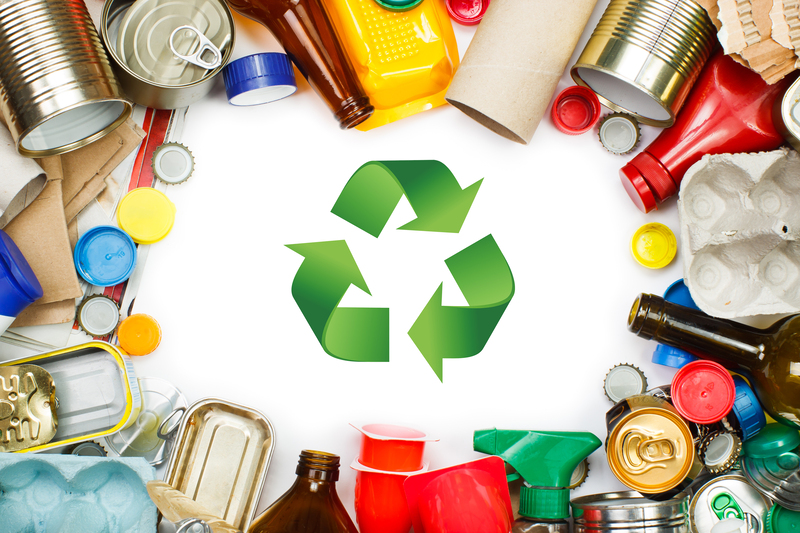Understanding the Effects of Mismanaged Waste on the Ecosystem
In recent years, environmental concerns have escalated due to the increasing impact of mismanaged waste on our ecosystem. From landfills overflowing to oceans laden with plastics, the implications are vast and multifaceted. This article dives deep into the consequences of improper waste management and explores sustainable solutions.
What is Mismanaged Waste?
Before delving into its effects, it is crucial to define mismanaged waste. Waste mismanagement occurs when waste is not properly disposed of, leading to pollution and degradation. This encompasses poor handling of industrial, agricultural, and household waste.
Categories of Waste Mismanagement
- Industrial Waste: Unregulated disposal of industrial by-products can lead to hazardous contamination.
- Agricultural Waste: Improper management of animal and crop waste can degrade soil health and water quality.
- Household Waste: Lack of recycling and inappropriate disposal methods contribute significantly to landfill waste.

The Immediate Impact on Terrestrial Ecosystems
When discussing the effects of improper waste disposal on land, the ramifications are both direct and significant:
Soil Contamination
One significant repercussion is soil contamination. Hazardous chemicals from waste leach into the soil, making it difficult for plants to grow. This contamination can also enter the food chain, posing health risks to humans and wildlife.
Loss of Biodiversity
As habitats become polluted due to waste accumulation, numerous species are driven to extinction. This loss of biodiversity disrupts natural ecosystems and threatens global ecological balance.
Landfill Overflow
Many regions face the challenge of landfill overflow, where too much waste accumulates, leading to unsanitary conditions that affect local communities and wildlife habitats.
Aquatic Ecosystems Under Threat
The mismanagement of waste significantly affects aquatic life. Water bodies suffer from:
Water Pollution
Pollutants from various waste sources seep into rivers, lakes, and oceans, contributing to severe water pollution. This pollution not only affects aquatic organisms but also impacts human communities that rely on these water sources.
Marine Life Endangerment
Plastic waste is a notorious threat to marine ecosystems. Many marine animals ingest plastics or become entangled, leading to injuries or death. This impact on marine biodiversity disturbs the ecological balance necessary for ocean health.
Coral Reef Destruction
The increasing acidity from chemical waste endangers coral reefs, which are crucial marine habitats. Without coral reefs, many marine species lose their homes, leading to further biodiversity loss.
Atmospheric Consequences
While land and water effects are more tangible, mismanaged waste also impacts the atmosphere:
Greenhouse Gas Emissions
Decomposing waste emits greenhouse gases like methane, contributing to global warming. This exacerbates climate change and its associated impacts worldwide, such as extreme weather conditions and rising sea levels.
Air Pollution
Open burning of waste generates harmful pollutants, leading to air quality degradation. These pollutants pose health risks to humans and contribute to various respiratory and cardiac conditions.
Socio-Economic Impacts
The repercussions of mismanaged waste extend beyond environmental damage:
Health Hazards
Communities living near improperly managed waste sites face significant health risks, including increased instances of disease and chronic ailments due to exposure to toxic substances.
Economic Costs
- The cost of cleaning up polluted sites can be exorbitant, diverting funds from other crucial needs such as education and infrastructure.
- Loss of biodiversity impacts industries that rely on natural resources, like fishing and agriculture.

Sustainable Solutions for Waste Management
Addressing the challenges posed by mismanaged waste demands comprehensive strategies:
Implementing Effective Recycling Programs
Encouraging and investing in recycling initiatives can significantly reduce landfill waste and mitigate environmental damage. Recycling also conserves energy and natural resources, fostering a sustainable environment.
Innovative Waste-to-Energy Technologies
Implementing waste-to-energy technologies allows for the conversion of waste into usable energy, reducing dependence on fossil fuels and decreasing landfill waste.
Public Awareness Campaigns
Raising public awareness about the impacts of waste mismanagement and promoting responsible disposal can play a pivotal role in inspiring community-driven environmental stewardship.
Government Legislation and Policies
Governments worldwide must enforce stringent waste management regulations to ensure industries adhere to sustainable practices. Policies should promote waste reduction, recycling, and the development of eco-friendly disposal technologies.
Conclusion: Moving Towards a Sustainable Future
The effects of mismanaged waste on the ecosystem are extensive and alarming. However, through collective action from individuals, communities, industries, and governments, it is possible to mitigate these impacts. By prioritizing sustainable waste management practices, we can protect our environment, preserve biodiversity, and ensure the well-being of future generations.